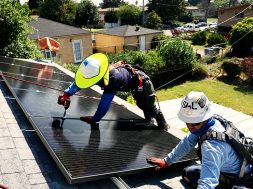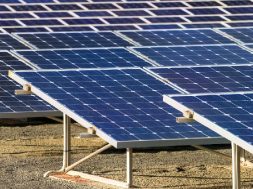
Naxal-hit areas may get 2,726 towers in the next two years
The Narendra Modi-led NDA government is expected to grant assent to a home ministry demand put out earlier this month and greenlight a telecom department rollout of another 2,726 solar-powered mobile towers in the Naxal-hit areas.The Department of Telecom (DoT) and the state-run Bharat Sanchar Nigam Limited (BSNL) are however closely working on a formal request sent by MHA for an urgent deployment of towers in left-wing extremism (LWE) hit areas in next two years, an industry person told ET.
BSNL, with homegrown vendors Vihaan Networks Limited (VNL) and Himachal Futuristic Communications Limited (HFCL), has recently concluded the first phase of the world’s largest solar-powered GSM network with a total of 2,199 mobile tower sites.”We are expecting BSNL to float tender for the second phase of the LWE network project rollout within the next six to eight months time,” VNL chairman Rajiv Mehrotra told ET.Gurgaon-based VNL is a principal partner which has installed 1,315 sites, while HFCL deployed 521 solar-powered mobile towers in the Naxal-hit states that include Bihar, Chhattisgarh, Odisha, Telangana, West Bengal and Madhya Pradesh.
The capital expenditure of each site is estimated to be Rs 70 lakh and is equipped with disaster management system, Mehrotra said.Out of the total telecom tower base, 1,315 would be maintained by VNL and 521 by HFCL for a five-year term which could be extended after a review, while the pre-existing 363 towers were kept out from the ambit of two companies.The entire initiative is fully-Indian and localized in sync with government’s vision of ‘Make in India’ and renewable energy focus, and despite harsh conditions and continuous threat to our staff, we were finally able to deploy the required cell sites in Naxalite areas, Mehrotra said.
A top VNL executive said the initiative has generated as many as 6,000 tribal jobs including 200 at senior levels.Conceived by the MHA to combat insurgency in the left-wing extremism affected areas, DoT’s Universal Service Obligation (USO) Fund is bearing the Rs 3,567.58 crore project cost. The project was initially approved by the Cabinet in June 2013.













